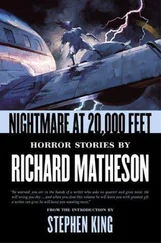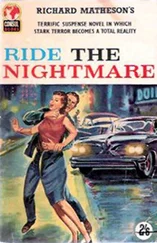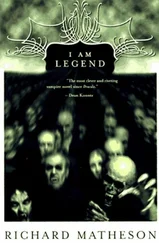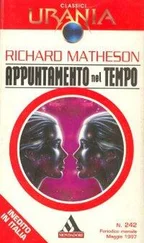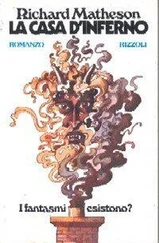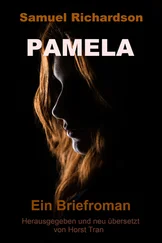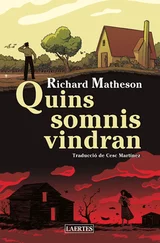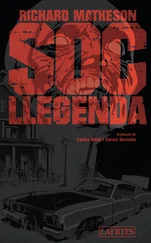“Got it,” I said, smiling.
That returned smile again. Utterly charming. “Glad t’hear it,” he said.
“And BF?” I inquired.
He looked embarrassed. “Out of turn,” he said.
“Means… bloody fool?” I guessed.
“Something like that, Whitehead,” he confessed.
“White.”
“Oh, yes. Mistake again.” That smile. It would likely bring on forgiveness for a capital crime.
Before continuing, let me (partially) explain my opening comment to my introduction of Harold Lightfoot, that he changed my entire life. He did. Mostly for the better. Not entirely, though, as you will—to quote Arthur Black—“presently discover, hopefully to your edification, more likely to your—” Well, let that go. I don’t want to spook you so soon. Let’s just say that, yes, most definitely, Harold Lightfoot changed my life.
* * *
“You’re a Yank,” said Harold Lightfoot. “From where?”
I told him Brooklyn, New York, and he immediately launched into a detailed lecture, informing me that, of course, it was a well-known fact that England had a city named York. The “new” world being established exclusively by English immigrants (according to Harold), they named that city New York (emphasis his), followed by a conversion of Jersey into New Jersey, Hampshire into New Hampshire, and the whole kaboodle into New England.
He was just completing his lecture when the Germans, having either completed Sabbath service or received a new shipment of ammunition, deposited a few dozen mortar shells on our trenches, several of which fell on our particular spot. Opting for caution rather than probable dismemberment, Harold Lightfoot (his rapid movement verifying his family name) and I retired posthaste to what we called “the cave” at the rear of the trench, where we slept, cooked our gourmet slumgullion—a stew made of “monkey meat” (bad beef) and any other edible lying around that wasn’t deadly poison—ate our hardtack—appropriately named—slept, and dreamed our pointless dreams. There, Harold Lightfoot and I cowered while the world exploded around us.
From there on, my friendship with Harold Lightfoot consisted of (1) language interpretation and (2) general military information. A smattering of same below.
One:
a. “And pigs might fly!” meant “Yeah sure !” (Sarcasm.)
b. “As near as dammit” meant “That was close.” (Used quite often with nearby landing mortar shells.)
c. “As easy as kiss your hand” meant “Easy as pie.”
Two:
a. We were “relieved” of our 1903 model Springfield, .30-caliber rifle with a Mauser action. Replacing it was the P17 short magazine Lee-Einfield, .30.06 caliber rifle. (How Harold remembered all those details still puzzles me.)
b. Hand grenades are activated as follows: (1) Pull out the “spoon” (the metal lever). (1a) Hold in the spoon until prepared to— (2) Throw the grenade (preferably at the enemy), which will explode, hurtling grenade fragments eighty feet. (Step 1a was essential, Harold emphasized.)
c. Bayonets? Forget it. A rifle with a bayonet attached would be overweighted. And .45-caliber handguns? Officers and senior noncoms only. Shotguns? I asked Harold about his. He told me he had gotten it in a trade. The shotgun was called a “trench broom.” (Think about it.) The Germans objected to it. It violated the “rules of war.” I often wondered what kind of strange person devised those “rules,” which should have been “stay home and leave well enough alone.”
d. Watch out for “lingering gas” in shell holes. Arsenic poisoning was a by-product of gas-grenade explosions. Lyelike, it devoured the testicles of any man taking refuge in that particular shell hole. Not to mention facial disfigurement.
e. Stay away from brothels. Syphilis and gonorrhea (spelling? never could get them right) might detract from your soldiering skills.
f. Forget about what the army taught you about camouflage. In a trench?
* * *
Harold mentioned Gatford one cloudy afternoon prior to another land attack. He was feeling fatalistic, I imagine. Perhaps not. At any rate, he mentioned Gatford, starting with, “I wonder if I’ll ever make it home.”
“Where’s home?” I asked.
“Gatford,” he replied.
“Where’s that?” I asked.
“Town in Northern England,” Harold told me.
“Nice?”
“Gorgeous,” Harold said. He’d never used that word before. No, once. In reference to the extreme size of a certain female’s breasts. But this was more soulful.
“You miss it, then,” I said.
“Who wouldn’t? It’s gorgeous. ” Twice now. I gathered that he cared for the place.
“Gatford,” I said.
“Gatford,” he repeated.
“And you think it’s gorgeous.”
Harold frowned. “You makin’ fun of me?” he said.
“No, not at all,” I answered, feeling guilty that he thought so. “I’d never say Brooklyn is gorgeous.”
“Awright,” said Harold, with that smile. I admired that smile.
“Tell me about it,” I said.
Gatford, as he told me, was in the northern part of England, thirty or so miles southeast of—no, I don’t believe I’ll tell you where it is. It’s possible you’d think of going there, and that would be a bad idea—for a number of reasons I’ll enumerate presently. For now, let it be that Gatford is thirty or so miles southeast of______. And don’t think that knowing its name will make it that much easier to locate it. Not so. If Harold hadn’t given me precise instructions, I’d have never found it. Nor would you. And Harold is gone.
What was so gorgeous about Gatford? Harold had little success in telling me. All he could repeat was “gorgeous.” The gardens, the cottages, the shops, the—well, the entire countryside, all “gorgeous” (if a little “different”). That, he never explained. So I got scant specific information about Harold Lightfoot’s hometown except that—as he kept reiterating—it was “gorgeous.” For a short while, before common sense intervened, I had the sensation that Gatford had somehow mesmerized him into describing it with a single word. Then I dropped the feeling. Captain Bradford Smith White, USN, had rooted out all fancy thinking from my psyche. God, how that changed! As you will discover, hopefully to your edification, more likely to your— Well, you’ve heard that before. Arthur Black style.
Anyway, Gatford established itself in my mind as some unidentified gorgeousness in Northern England. At the time, the lack of determinate location didn’t matter to me, since I had no intention of immigrating there.
* * *
And so as the weeks went by, my friendship with Harold Lightfoot increased steadily.
The afternoon he got killed, we were discussing—spacing our conversation with hasty retreats to the nearest cave enclosure to avoid the dire effects of exploding mortar shells—the subject of shotgun utilization. This time, my curiosity was not directed toward the effects of a shotgun “burst.” I’d seen them, been nauseated by the sight, and understood them implicitly. Instead, my prying had to do with trading procedure. Who did Harold get the shotgun from? How did he pay for it?
Harold chose not to reveal the identity of the trench merchant. Not a good idea, he pointed out. If word got out who the merchant was, he could get arrested and, conceivably, courtmartialed. It made no matter to me. I was interested only in method of payment. Money? I didn’t think Tommies made that much. Unless they were higher ranked. Barter? For what?
Which was when Harold, maybe uncomfortable with the withholding of the shotgun source’s name, revealed to me what he’d used to trade for the weapon in question. Gold, he said.
Читать дальше


